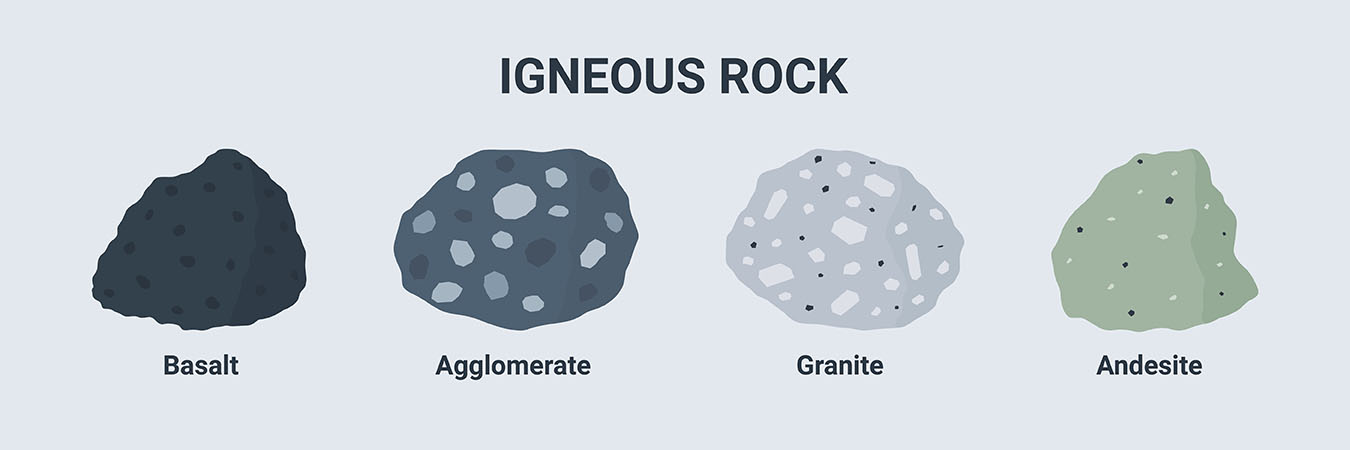
extrusive igneous rock
Definition
Extrusive igneous rock is formed when magma, or molten rock, cools and solidifies on Earth's surface. This type of rock is also called volcanic rock because it is formed from lava, which is the molten rock that erupts from volcanoes.
Extrusive igneous rocks are typically fine-grained because they cool quickly. They are also often very colourful, with shades of red, orange, yellow, brown, and black.
Some examples of extrusive igneous rocks include:
- Pumice: Pumice is a light, porous rock that is formed when lava cools very quickly.
- Basalt: Basalt is a dark, fine-grained rock that is one of the most common rocks on Earth.
- Obsidian: Obsidian is a black, glassy rock that is formed when lava cools very quickly.
How can the word be used?
Extrusive igneous rocks are rocks that form when lava cools and solidifies on the surface of the Earth.

Different forms of the word
Noun: extrusive igneous rock, volcanic rock.
Adjective: extrusive, volcanic.
Verb: to extrude, to erupt.
Synonyms: igneous rock, lava, tephra.
Etymology
The word "extrusive" comes from the Latin word extrudere, which means "to push out." It was first used in English in the 17th century, and it is still used today to refer to something that is forced out of a container or opening.
The word extrudere is made up of the Latin words ex (out) and trudere (to push). The word trudere is also the source of the English word "thrust.".
Question
What is extrusive igneous rock?